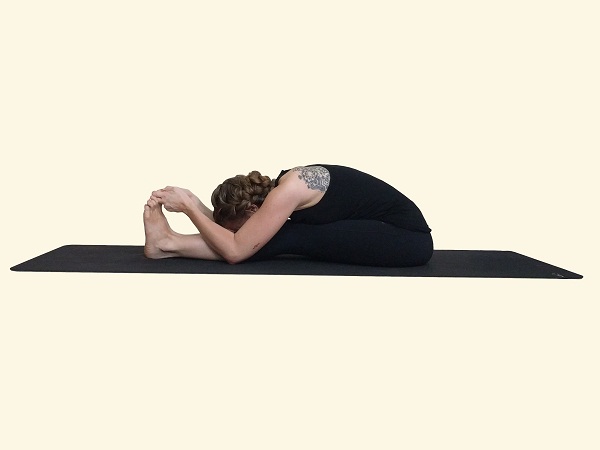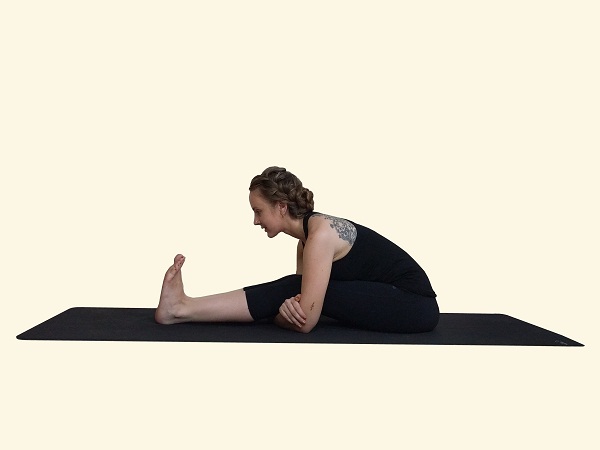This posture is full of benefits, but also not free from risks. Especially people with weak backs, need to listen to their body and modify the posture accordingly. This is the first variation

Steps:
- Start sitting on the floor with the legs outstretched {Dandasana (staff posture)}. You may want to sit on a blanket for support.
- Relax the whole body.
- Inhale lengthen the abdomen and lift the chest.
- Exhale bend forwards from your hips (NOT YOUR WAIST) as if you were being pulled down from your navel. Keep the shoulders open (pulled away from the ears) and the head up.
- Reach forwards and hold the big toes in a lock with the middle and index fingers, (if you cannot hold the toes, bring your hands to your ankles or shins).
- Inhale lengthen the torso, bring the sternum forward.
- Exhale being the chest and abdomen down to the thighs and the elbows out to the sides.
- Stay in this position for 5 deep breaths, allowing the muscles to relax as you exhale.
- Unless you can lie comfortably with your chest on your legs keep the head up to make sure you don’t round the back.
- Focus on stretching the hamstrings rather than getting the head to the knees.
Modifications:
- Hold onto the shins or ankles
- Use a strap around the feet
- (For anyone with lower back pain) Ben the knees and link the arms underneath so that the abdomen comes onto the thighs. slowly straighten your legs as far as is comfortable with your body still on your legs.

Benefits:
- Stretches hamstrings, spine, shoulders and hip joints
- Massages the pancreas (good for diabetics)
- Improves digestion
- Can relieve menstrual discomfort
- Reduces headache
- and anxiety and reduces fatigue
- Can be used to improve fertility
- Balance high blood pressure
- Reduces insomnia, and sinusitis
- Reduces abdominal fats and helps metabolism
- Relieves anxiety and stress, calming the brain
Contraindications:
- Asthma
- Back injuries (slipped disc etc.) If you have any back injuries and want to perform this posture do so under the guidance of a qualified teacher.